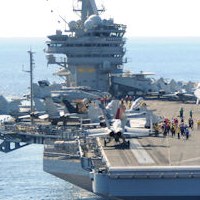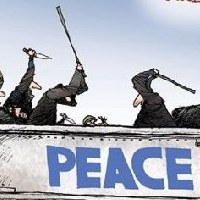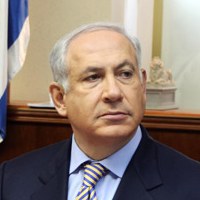![]()
Wed, Dec 08, 2010 | The Meir Amit Intelligence and Terrorism Information Center | With some additions by Crethi Plethi
Hamas and Palestinian Authority Remarks on the Anniversary of the UN Partition Plan
November 29 marked the anniversary of the United Nations Partition Plan for Palestine. The UN Partition Plan was a resolution adopted on 29 November 1947 by the General Assembly of the United Nations. The resolution recommended the termination of the British Mandate for Palestine and the partition of the territory into two states, one Jewish and one Arab, with the Jerusalem-Bethlehem area being under special international protection, administered by the United Nations. The resolution also contained a plan for an economic union between the proposed states, and a plan for the protection of religious and minority rights. The proposed plan was accepted by the leaders of the Jewish community in Palestine. The plan was rejected by leaders of the Arab community, who were supported in their rejection by the states of the Arab League. If the Arabs would have accepted the Partition Plan in 1947, they would have had an Arab Palestine in 1947 with more land than the 1967 borders for a Palestinian state today.
Statement from the Palestinian Authority
The Palestinian Authority’s information ministry sent a press release claiming that the Partition Plan had created the “foundation for the wounds caused by the nakba [the Palestinian “catastrophe” of 1948]…which were still open” and the reason the Palestinians had lost “their land and historical legacy.” The press release called for the UN General Assembly to translate its calls to “wipe out colonialism” into action and said it hoped the international community would act to put an end to the “occupation” and realize the “dream of a state and the return” (Wafa News Agency, November 29, 2010).
Senior Palestinian Authority Figures Laud the Non-Violent “Popular Resistance” against Israel
Mahmoud Abbas, chairman of the Palestinian Authority, restated his position that he “opposes recognizing Israel as a Jewish state.” He also said he opposed the idea of establishing a Palestinian state with temporary borders or the dismantling of the Palestinian Authority. He said that the Palestinians should continue their popular struggle against Israel, boycott products manufactured in the settlements and denounce Israel’s acts in the international arena (Shuruq, November 30, 2010). On a different occasion he said the recent calls made by Khaled Mashaal, head of Hamas’ political bureau, to revive the “resistance” [i.e., terrorist attacks] in Judea and Samaria were “political schizophrenia.” That was because, he said, Hamas itself adhered to a lull in the fighting and prevented rockets from being fired from the Gaza Strip (Palestinian Authority TV, December 3, 2010).
Nabil Shaath, member of Fatah’s Central Committee, said during a visit to Austria that the Palestinians had “returned to an unarmed popular struggle,” which was being undertaken alongside activity in the international arena. He said that there was no call being raised for a new violent intifada, because an unarmed uprising was “currently considered preferable.” He noted that the Palestinians would not respond to pressure to renew the armed struggle. The Palestinian activity in the international arena was based, he said, on several factors, including the formation of ties with socialist parties agitating to boycott Israeli products and keep investors out of Israel. He also mentioned the Party of European Socialists (PES),[1] whose conference he attended. He claimed that foreign activists make up 40% of the demonstrators at Bila’in, Ni’lin and Beit Jala (Al-Sharq al-Awsat, December 2, 2010).
Nabil Shaath also attended the PES debate on progressive societies and held a plenary speech. He was introduced by former Danish prime minister and former leader of the Danish Social Democrats Poul Nyrup Rasmussen, who is currently President of the Party of European Socialists (PES) with the words “…high estimated dear friend and strong, strong representative for Hamas.” Now, what does it mean when a well-educated and experienced former prime minister and current leader of the European Socialists make such a mistake? It can only mean that Rasmussen (and perhaps many other members of the European Socialists) feels that representatives from the Palestinian Authority or representatives from the ‘genocidal anti-Jewish Iranian-backed terrorist organization of Hamas’ are one and the same. So what did Nabil Shaath said about this? He corrected it with a smile “one correction, I represent Fatah, not Hamas,” Shaath said. And Nabil Shaath sounds just like a representative of Hamas. “We want to see you [left-wing parties] in power in Europe…A social democratic Europe is strength to Palestine, but also a progressive prosperous Middle East is strength to social-democracy and Europe,” he noted. Adding that “…after 19 years [Madrid Conference of 1991] all of Palestine is still under Israeli occupation. Under constant colonization, settlements and siege…this does produce instability and does not promise us a future of hope…this is not good for us, not good for Europe.” This is what he has to say to the left-wing parties in Europe, because he knows they will accept the lies and distortions of the facts. As if Israel is causing instability in the Middle East and not the extremists and jihadists of Hamas and Hizballah. As if Israel is occupying all of Palestine as an entity who does not belong in Palestine and without acknowledging Israel’s right to exist and the Jewish bonds to the land and Jerusalem. As if a Palestinian state would be good for Europe and only Israel is blocking this prosperous and hopeful future. Maybe Rasmussen’s mistake was not a slip of the tongue after all.
Plenary speech : Nabil Shaath from PES Party of European Socialists
Statements from the de facto Hamas administration and Senior Hamas Figures
Hamas’ information bureau issued a statement to the press on the eve of the anniversary of the UN Partition Plan. It claimed that the Plan was unjust and caused great suffering to the Palestinians. It called the UN plan “oppressive and invalid” and called for a “return to a national liberation program of resistance [i.e., terrorism]” (Hamas’ Palestine-info website, November 29, 2010).
Hamas’ department of refugee affairs stated that “the land of Palestine is one unified entity from the [Mediterranean] sea to the [Jordan] river, and the private property of the Palestinian people.” According to the announcement, the Partition Plan was legally and politically null and void. It called for unity in the Palestinian struggle against “the Zionist-American project” and for “the full return of all the refugees to the entire Palestinian territory.” It also denounced the American attempt “to create legal legitimacy” for the existence of Israel, which was a “racist, non-humanitarian entity, foreign to the region” (Al-Bayan Center website, November 29 2010).
Ismail Haniya, head of the de facto Hamas administration in the Gaza Strip, claimed that although according to the Hamas charter Israel was to be annihilated, the movement would accept the results of a Palestinian referendum regarding any peace agreement with Israel. That would be true on the conditions that it was held in the “territories” and among Palestinian communities living abroad, and that it included the establishment of a Palestinian state with the 1967 borders, realization of the so-called “right to return,” and the release of the Palestinian prisoners held in Israel (Al-Bayan Center website, December 1, 2010). Following his statement, Salah Bardawil, head of Hamas’ “information” department, clarified Ismail Haniya’s remarks, claiming that Hamas would not recognize Israel “under any circumstances” (Hamas’ Paltoday website, December 4, 2010.)
Mahmoud al-Zahar, Hamas faction member of the Palestinian Legislative Council, said that Hamas members “would not recognize Israel or cede any part of Palestine” and that he would not accept a referendum about fundamental principles. He said that a referendum could be held regarding “modus operandi” but not about “the holy places, faith, money, land or personal worth.” He hinted that should a future agreement which ran counter Hamas’ position be accepted, the movement would renounce it as it had renounced the Oslo Accords (Al-Dustour, December 6, 2010).
Ayman Taha, senior Hamas figure, again stated that Hamas’ position was Palestinian withdrawal from the negotiations and agreement on a national program which “will unite all the Palestinians under the option of jihad and resistance [i.e., terrorism and violence].” He said Mahmoud Abbas was “confused and unstable” and called him “an agent of Israel” (Hamas’ Palestine-info website, December 4, 2010).
Ahmed Bahar, Hamas figure and deputy chairman of the Palestinian Legislative Council, visited Algeria, where he participated in a conference about Palestinian prisoners held in Israel. Speaking at the conference he said that the only way to secure their release was “resistance” [i.e., terrorism]. He suggested abducting “more Israeli soldiers and not relying only on [Gilad] Shalit” (Al-Shuruk Al-Yawmi, December 2, 2010).
Notes:
[1] The Party of European Socialists (PES) brings together the Socialist, Social Democratic and Labour Parties of the European Union (EU). There are 33 full member parties from the 27 EU member States and Norway. In addition, there are twelve associate and five observer parties.



 RSS
RSS











#Hamas And Palestinian Authority Remarks On The Anniversary Of The #UN Partition Plan | #Israel #PA http://j.mp/eXEYAr
#Hamas And Palestinian Authority Remarks On The Anniversary Of The #UN Partition Plan | #Israel #PA http://j.mp/eXEYAr
PES president Rasmussen's Slip Of The Tongue And Nabil Shaath Speech | #Israel #EU #Fatah #Eurabia http://j.mp/eXEYAr
RT @CrethiPlethi: PES president Rasmussen's Slip Of The Tongue And Nabil Shaath Speech | #Israel #EU #Fatah #Eurabia http://j.mp/eXEYAr
RT @CrethiPlethi: #Hamas And Palestinian Authority Remarks On The Anniversary Of The #UN Partition Plan | #Israel #PA http://j.mp/eXEYAr